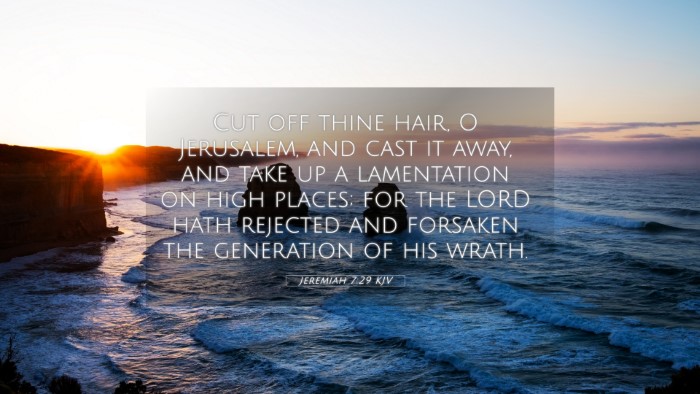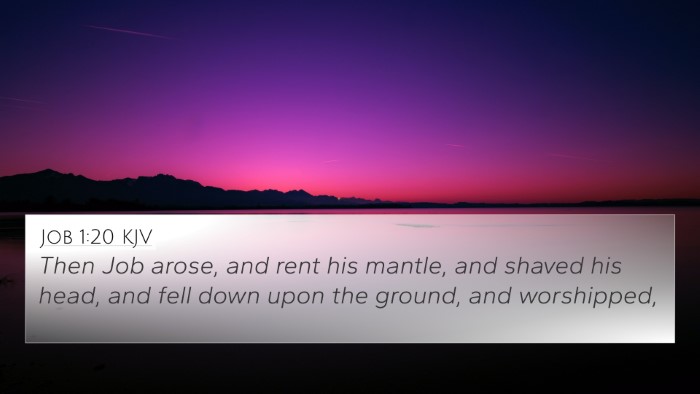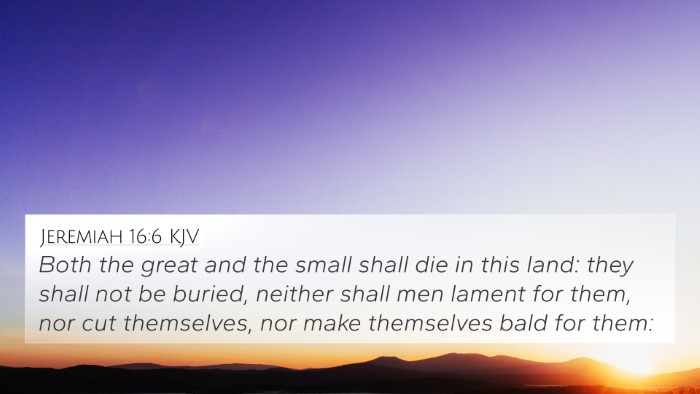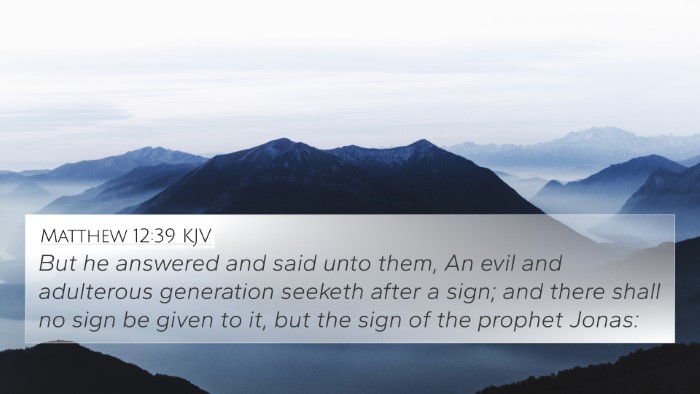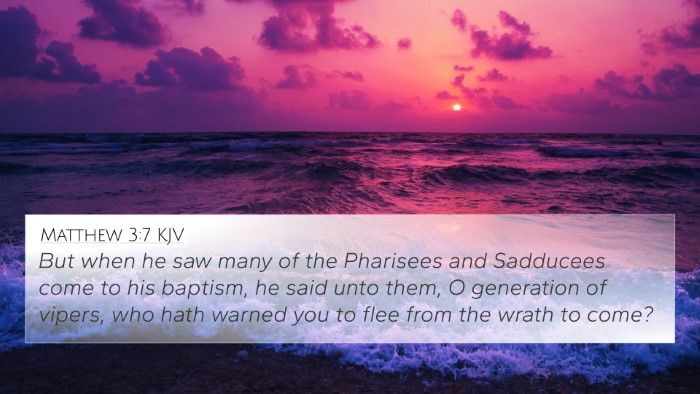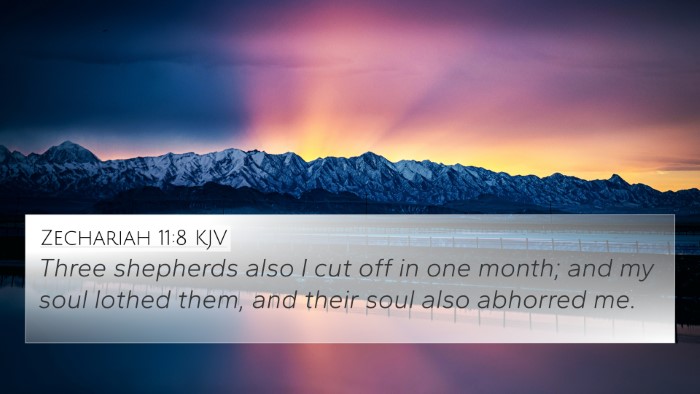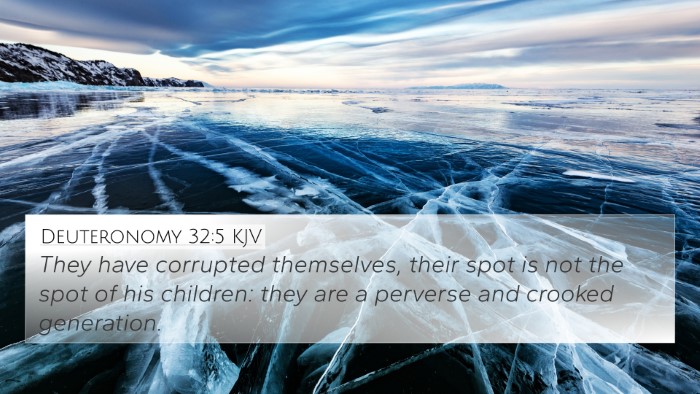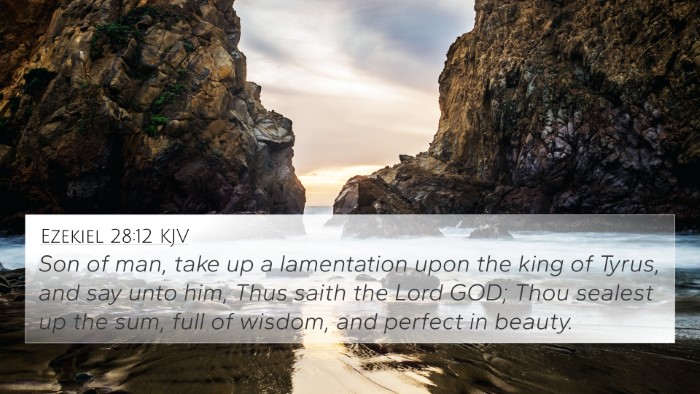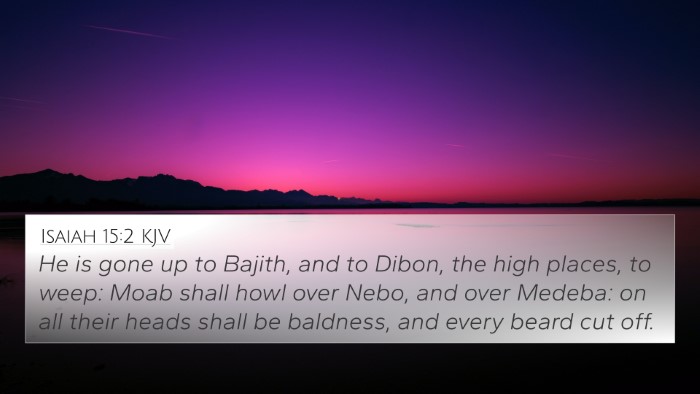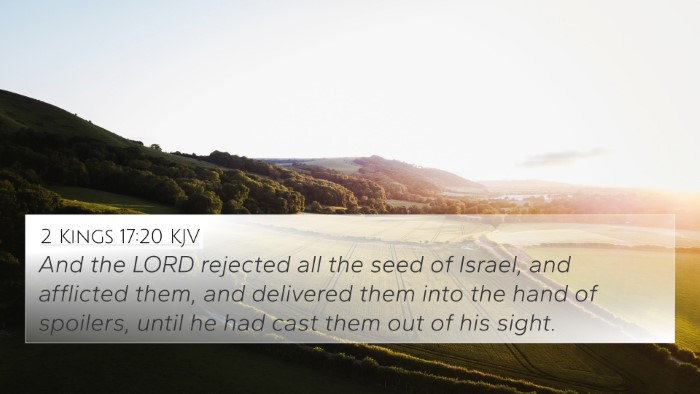Meaning of Jeremiah 7:29
The verse Jeremiah 7:29 states: "Cut off your hair, and cast it away, and take up a lamentation on high places; for the Lord has rejected and forsaken the generation of his wrath." This verse carries profound implications for understanding God’s relationship with His people and highlights themes of judgment, lamentation, and divine rejection.
Contextual Analysis
This verse occurs within a broader discourse where God, through the prophet Jeremiah, addresses the people of Judah regarding their rebellious ways. The preceding verses showcase the Israelites’ false sense of security in their temple worship while engaging in idolatry and injustice. Jeremiah calls for a sincere repentance that would rather align with God's expectations than hollow rituals.
Commentary Insights
Matthew Henry's Commentary
Matthew Henry emphasizes that the command to “cut off your hair” symbolizes a deep mourning and a public expression of grief. This act signifies the people's need for repentance and a recognition of their failures that have led to God's disapproval. Furthermore, casting away the hair implies the necessity to remove anything that represents pride or vanity among them.
Albert Barnes' Notes
Albert Barnes highlights the significance of high places where idolatrous worship often occurred. He interprets the lamentation as an acknowledgment of divine rejection, expressing sorrow not just over their sins, but also the resulting separation from God's favor. He points out that God's rejection is directed towards a generation not willing to follow Him genuinely, highlighting the consequences of spiritual negligence.
Adam Clarke's Commentary
Adam Clarke further elaborates that the lamentation and cutting off of hair reflects a strong cultural expression of grief, especially in ancient Israel. Clarke notes that this verse shows the seriousness of God's judgment - a reality that ought to evoke a passionate response among the people. His commentary places emphasis on self-examination, urging the Israelites to realize the gravity of their spiritual condition.
Bible Cross-References
Jeremiah 7:29 can be linked with various other Scriptures that enhance its meaning through thematic parallels and connections. Here are relevant cross-references:
- Jeremiah 1:16 - Highlights God's impending judgment on Israel for forsaking Him.
- Isaiah 22:12-13 - Calls for lamentation in response to God's judgment.
- Lamentations 1:8 - Reflects the sorrow of Jerusalem and the consequences of sin.
- Micah 1:16 - Expresses mourning similar to cutting off hair due to impending doom.
- Zephaniah 1:7-9 - Warns about the day of the Lord and calls for mourning.
- Ezekiel 27:30 - Describes lamentation over the fall of Tyre, mirroring loss and grief.
- Matthew 5:4 - "Blessed are those who mourn," connecting mourning with a deeper spiritual truth.
- Revelation 18:19 - Demonstrates lamentation over the fall of Babylon, aligning with themes of judgment.
- Psalm 137:1-6 - Captures the pain of exile and loss among God’s people.
- Romans 11:22 - Discusses the severity of God's judgments and the need for awareness.
Thematic Connections
In analyzing Jeremiah 7:29, various biblical themes surface, enhancing our understanding of God’s character and the human condition. Through the act of cutting off hair, readers are invited to explore themes of:
- Judgment - The serious nature of divine reaction to unfaithfulness.
- Lamentation - A call to sorrow over sin, indicating a need for genuine contrition.
- Separation - God’s rejection due to unfaithfulness highlights the consequences of turning away from Him.
- Repentance - The necessity of returning to God with sincerity is emphasized strongly in the prophetic literature.
- Divine Mercy - While judgment is pronounced, there is an implicit call for return and restoration.
Applying the Verse Today
For contemporary readers, Jeremiah 7:29 serves as a reminder that spiritual complacency can lead to dire consequences. As believers, it calls for genuine reflection on one’s walk with God, the attitudes of the heart, and the importance of aligning actions with faith. The necessity of mourning for one’s sins prepares the heart for a revival that is sincerely seeking after God’s righteous ways.
Tools for Bible Cross-Referencing
Using tools for Bible cross-referencing can aid deeper understanding of Scripture. Here are suggested resources:
- Bible Concordance - Useful for locating specific verses and their relationships.
- Bible Cross-Reference Guide - Provides systematic ways to navigate biblical connections.
- Cross-Reference Bible Study - Engages readers in thematic exploration and theological study.
- Comprehensive Bible Cross-Reference Materials - Wider collections of linked scriptures for deeper study.
Conclusion
The rich meanings derived from Jeremiah 7:29, along with its connections to other biblical texts, contribute to a holistic understanding of God's expectations for His people. By cross-referencing biblical themes and inviting introspection through lamentation, this verse aptly serves both as a warning and an opportunity for revitalization in faith.

